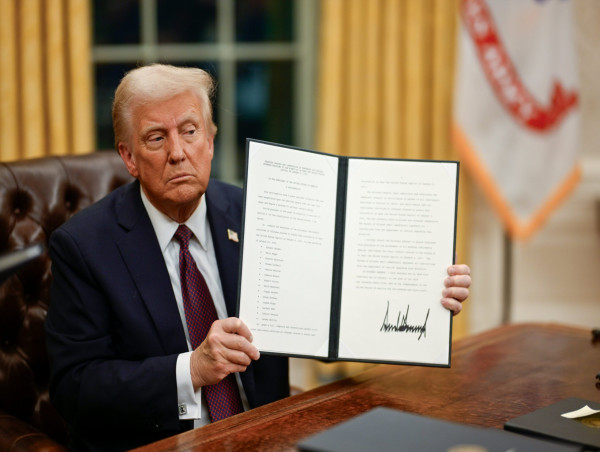During his campaign, presidential candidate Donald Trump has put forward a proposition that could drastically alter the financial landscape for millions of Americans: the elimination of taxes on tips.
While the concept of allowing service workers to keep more of their earnings sounds appealing on the surface, economists and policy analysts are divided on its potential impact, warning of unintended consequences that could disproportionately affect the working class.
A tax cut with strings attached? Examining the potential benefits
Proponents of the policy argue that it would provide much-needed relief to those working in tipped industries.
A report from The Budget Lab at Yale University estimates that eliminating tip taxes could result in an average tax cut of $1,700 per year for affected families.
However, the Yale report also notes that this benefit would be concentrated among a relatively small group of Americans.
“About 4% of families report tips to the IRS, and those who do are disproportionately young, unmarried, and lower-income,” the report states.
“This means that many tipped workers do not pay income tax to begin with and would not benefit from a new deduction.”
Critics of the plan caution that it could have several negative side effects.
Without careful safeguards, the elimination of tip taxes could exacerbate “tipping fatigue,” leading businesses to pressure customers into tipping more frequently, even for services where it is not traditionally expected.
The Economic Policy Institute (EPI) suggests that this change could make it easier for businesses to expect higher gratuities, even adding “recommended gratuity” to invoices with the expectation that consumers won’t speak up.
Furthermore, highly paid professionals like lawyers and financial advisors could exploit the system by reclassifying their fees as tips to avoid paying taxes, the EPI added.
The current disdain for tipping culture goes beyond young people or those on a budget.
Nearly 9 in 10 Americans think tipping culture is out of hand, according to a recent survey from WalletHub.
What’s more, about 60% think businesses are replacing employee salaries with customer tips.
A more fundamental concern is that eliminating taxes on tips could incentivize employers to lower base wages for tipped workers.
Under federal law, employers can pay tipped employees as little as $2.13 per hour, provided that they “customarily and regularly receive more than $30 a month in tips.”
This reliance on tips creates financial instability for workers and shifts the responsibility of providing a living wage from employers to customers.
The fiscal impact
Another potential downside of eliminating tip taxes is the significant reduction in federal revenue.
Yale estimates that the losses could exceed $100 billion over the next decade, even before accounting for behavioral changes that might further erode the tax base.
Because the government is already strapped for cash, that could lead to the further defunding of social programs that benefit lower-income, tipped employees.
According to the EPI:
The tax benefits could accrue primarily to high-income taxpayers, yet the revenue losses would harm the public overall, as governments would have less funding for high-quality public education, safe roads, public health, and anti-poverty programs for children and families.
While Donald Trump has championed the elimination of tip taxes, the issue has also garnered support from some Democrats, including Kamala Harris. However, these endorsements often come with caveats, such as restrictions on the scope of the policy and calls for increases in the minimum wage.
As the debate over tip taxes continues, it is essential to consider the potential benefits and drawbacks for all stakeholders, ensuring that any changes to the system promote fairness and economic opportunity for all Americans.
The post Tax-free tips: Trump's promise could save over $100 billion, but at what cost? appeared first on Invezz





